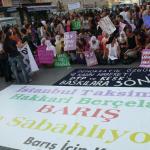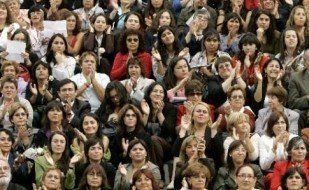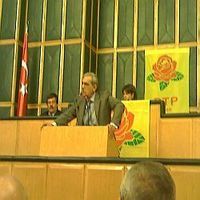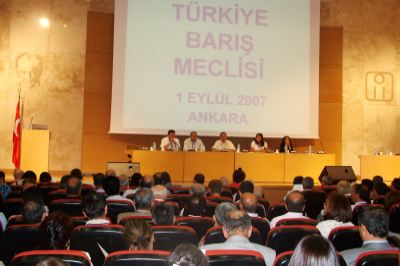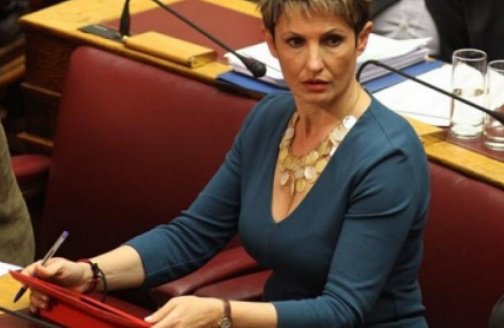On 9 and 10 February, the Turkish Peace Parliament organised a symposium in Ankara, entitled “Democratisation and the Kurdish Issue during the New Constitutional Process.”
Criticism of Turkey's "Social Schizophrenia"
According to an article in the Birgün newspaper, Prof. Dr. Baskin Oran, co-author of the Minority Rights and Cultural Rights report and independent candidate for parliament in the last elections, called for a “supra-identity” of “Turkey”, rather than “Turkish.”
Abdullah Demirbas, the former mayor of the Sur municipality in Diyarbakir, who was dismissed for introducing multi-lingual municipal services, said: “Prime Minister Erdogan, you said (to the Turks in Germany) that assimilation is a crime against humanity, but you are committing the same crime.”
Prof. Dr. Dogu Ergil, the author of an official report on the Kurdish issue in the 1990s, referred to the same speech by Erdogan and called it an example of “social schizophrenia.”
Women have more serious problems than the headscarf
On the second day of the symposium, participants criticised the fact that despite all the problems which women face, the headscarf has been chosen as a priority.
According to the Evrensel newspaper, Prof. Dr. Fatmagül Berktay of Istanbul University suggested that there needed to be a common struggle against pressure on women to obey.
Poet and writer Sennur Sezer spoke of the Novamed women who have organised a long-term strike, emphasising their energy and decisiveness. She added, “everyone wants peace, but most of all us women.”
Yüksel Mutlu of the Human Rights Association (IHD) spoke about the women’s movement and peace. She criticised the fact that the headscarf issue was being debated when women faced so many other problems.
Sara Aktas of the Diyarbakir Women’s Platform said that it was women who struggled for peace and democracy; the republic would only become more democratic if women were liberated. According to Aktas, ten percent of the political prisoners in Turkey are women.
Ilknur Baser of the Trade Union for Health and Social Workers (SES) criticised the fact that with the discourse on “bringing peace” to Iraq, the USA had emptied the term peace of meaning.
Many women still illiterate
Hülya Gülbahar, president of the Association for the Education and Support of Women Candidates (Ka-Der), pointed out that 50 percent of the adult women in the East and Southeast of Turkey were illiterate, and one in five in Turkey in general. This meant that women could not be voted for, and could also often not decide freely who to vote for.
Sociologist Ismail Besikci, well-known for his academic work on Kurds, praised the Peace Mothers. He said that one of the results of the “25-year Kurdish war” has been that Kurdish women have entered political life. Women’s participation was a way towards a solution.
Prof. Dr. Cengiz Aktar of Bahcesehir University, Istanbul, called for a decentralisation of the country and suggested more extensive use of EU funds. (NZ/AG)





